An Indigenous voice to parliament is about political power argues Victoria Grieves Williams
It is clear that the Indigenous voice to parliament model was designed in a rush and not cognisant of the complexity that exists in Aboriginal affairs as it threatens to reintroduce segregation to Australian society via the Constitution and the parliament, argues Victoria Grieves Williams
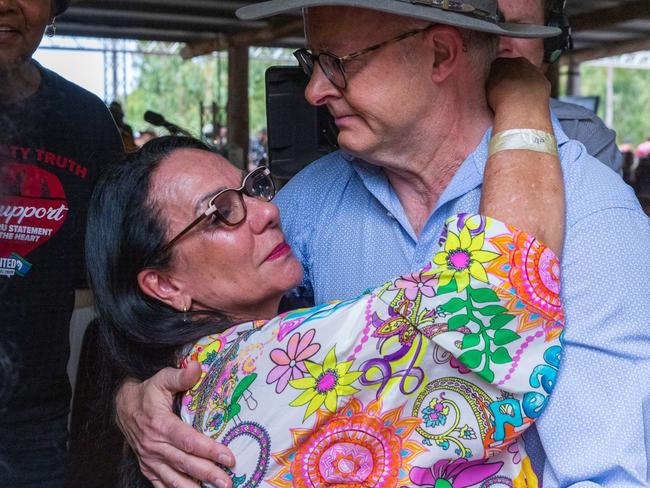
Australia is caught in a complex debate about how to best serve the political interests of Aboriginal people.
The aim, we are told, is to redress the problem of a power imbalance that impacts on the First Nations. Two new books aim to inform us, as we approach the referendum on the Albanese government’s proposed solution: the Voice to parliament.
They are very different books. I recommend them both as perhaps compulsory reading before you go to the ballot box since they are representative of both sides of the debate. While both are valuable, it is my considered opinion that one is more convincing than the other.
The contributors to the first book, Statements From The Soul, are writing primarily about the need to recognise Aboriginal people as the rightful, sovereign peoples of Australia, and to be truthful about the shattering history of colonial takeover and subsequent disregard for all things “Aboriginal”.
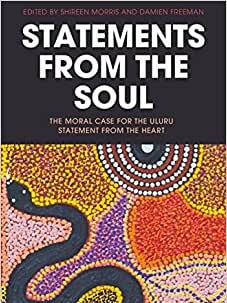
Indigenous broadcaster Stan Grant’s chapter opens the book with a philosophical argument for righting historical wrongs, based on Christian teachings. The image of the burning community church is searing, particularly as the mission churches were deliberately burnt down (it was assumed by activists) at that time, at Three-Mile Reserve, and right across NSW.
Some contributors seek forgiveness for what their colonial ancestors were responsible for. Essentially, they see a need to make amends. There are some lovely stories in this book, but it was disappointing for me that it did not include a detailed discussion of Aboriginal spirituality.
This is a glaring omission.
Ajmer Singh Gill, a Sikh, has researched Aboriginal spirituality and finds affinity with his beliefs. Other than that, very few contributors seemed to actually know any Aboriginal people (the exceptions are the delightful Hindu dancer Prakruthi Mysore Gururaj who experienced “a moment of spiritual integration” after being welcomed into the Gunggari women‘s circle; and Wesam Charkawi a Sydney-based Imam who travels to Northern Australia with Muslim youth to explore the historical Muslim connections from Sulawesi with yolngu.)
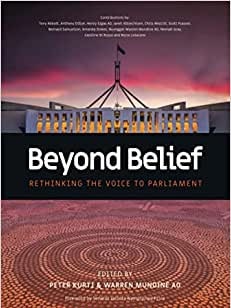
The second book, Beyond Belief, argues against the Voice, which has of course grown out of the Uluru Statement from the Heart.
The contributors are invariably constitutional conservatives and Liberals. I refer to the Voice as having “grown out” of the Uluru Statement because we are still very short of detail and what detail we have is not impressive in terms of serving Aboriginal people well.
The Uluru Statement from the Heart is a request of the Australian people and government to now recognise the First Nations as the original inhabitants, with our own laws and customs, and whose “ancient sovereignty can shine through” with “substantive constitutional change and structural reform”.
So, clearly, this is a bid for political power, built on an idea of atonement for transgressions of the past.
Many Aboriginal people were taken by surprise to see the Voice coming up front and centre. Even those who were at the meeting at the Yulara Resort say there was no consensus to promote Voice ahead of Truth and Treaty. Many Aboriginal people support a treaty first of all and understood it would be a priority.
For others, who perhaps were not there, it seemed to have been a given that “Truth Telling” or “Truth Talking” would lay the groundwork for future developments.
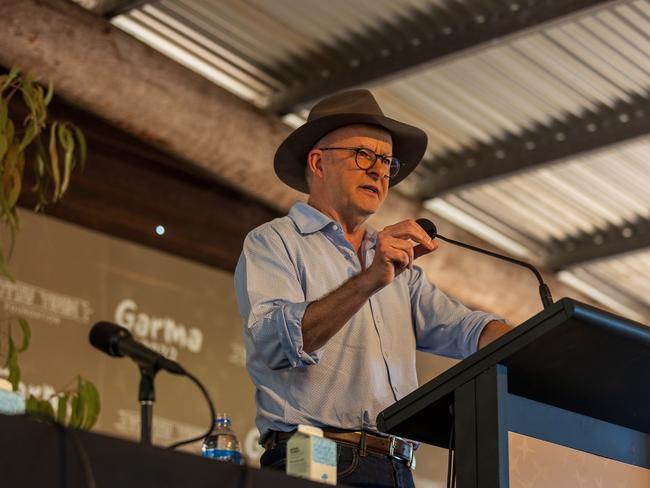
For the editors of the second book, it is “beyond belief” that the Voice is the only way to achieve reconciliation with Aboriginal and Torres Strait Islander people – and that Prime Minister Anthony Albanese committed his new government to a referendum on the Voice and on Recognition (rather than separating the two questions) at Garma, July 2022.
It is also “beyond belief” that anyone would want to change the Constitution for this purpose, or perhaps at all.
The book reflects a great knowledge of the history and the machinations of the Australian constitution and politics, which is extremely useful background. There are convincing arguments against this kind of constitutional change at this time. It is clear that the Voice model was designed in a rush and not cognisant of the complexity that exists in Aboriginal affairs.
The Voice would also, strangely, change the nature of our democracy that is predicated on the value of equality of all citizens.
It threatens to reintroduce segregation to Australian society via the Constitution and the parliament. We have already seen the division this model has caused, the race hate that has emerged weirdly from the proponents of the YES vote when they accuse NO vote proponents of racism.
Certain structural arrangements encourage attitudes and beliefs – this is what the Voice to Parliament is already doing.
Similarly, some contributors to the Beyond Belief book were concerned about the impact of these developments on Aboriginal people including unsurprisingly, Nyunggai Warren Mundine and Anthony Dillon, both Aboriginal people themselves.
The truth is that Aboriginal politics is extraordinarily complex. Just let that sit with you for a moment. This is the crux of it; it is as complex as the myriad clusters of family and clan groups across the country, formally and informally organised according to their homelands, or now also resident, maybe only part of the time, in more urban settings.
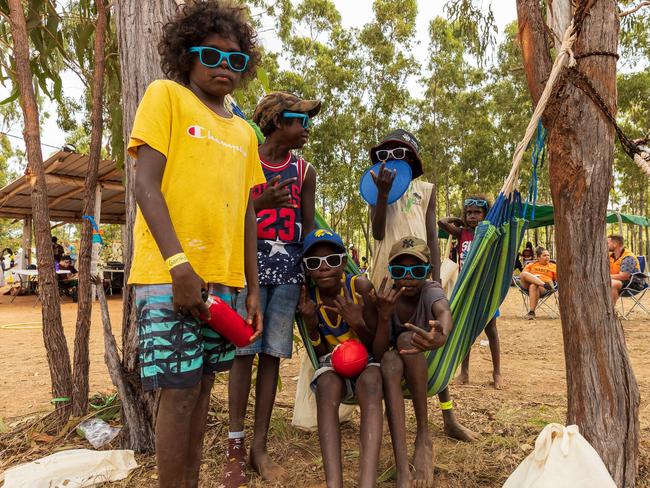
Add to these groups the western political and economic lines of connection to non-Aboriginal society that are superimposed on them. And these connections are also complex in their impacts on Aboriginal people, as is the governance arrangements of the Australian state, comprising federal, state or territory, and local interventions. Then we have native title bodies, land councils and Indigenous corporations.
So many visitors and so many meetings. Don’t forget too, there is a huge variation among those people who can be identified, or who now identify themselves as Indigenous and this includes Torres Strait Islanders and the incredibly overlooked South Sea Islanders, as well as white people.
It wasn’t all that long ago that anthropologist Peter Sutton ignited a national debate about the failure of governments to address the real needs of Aboriginal people in his message from the heart, The Politics of Suffering: Indigenous Australia and the End of the Liberal Consensus (2009).
My takeaway from the debate at that time was that the solutions are almost always local, and unfortunately, the policy stances, the resources and the emphasis is always on the big picture, the panacea, the new bright idea that will solve it all, with the focus always the national capital.
Nothing has changed even with this recent attempt to shift the crucible to the Centre of Australia and proclaim the Uluru Statement from the Heart.
Victoria Grieves Williams is Aboriginal, Warraimaay from the midnorth coast of NSW, and an historian. She currently lives in New York. Statements from the Soul: the Moral Case for the Uluru Statement from the Heart by Shirleen Morris and Damien Freeman (La Trobe University Press 240pp, $29.99). Beyond Belief: Rethinking the Voice to Parliament by Peter Kurti and Nyunggai Warren Mundine (Ed.) (Connor Court Publishing 190pp, $29.99).

To join the conversation, please log in. Don't have an account? Register
Join the conversation, you are commenting as Logout